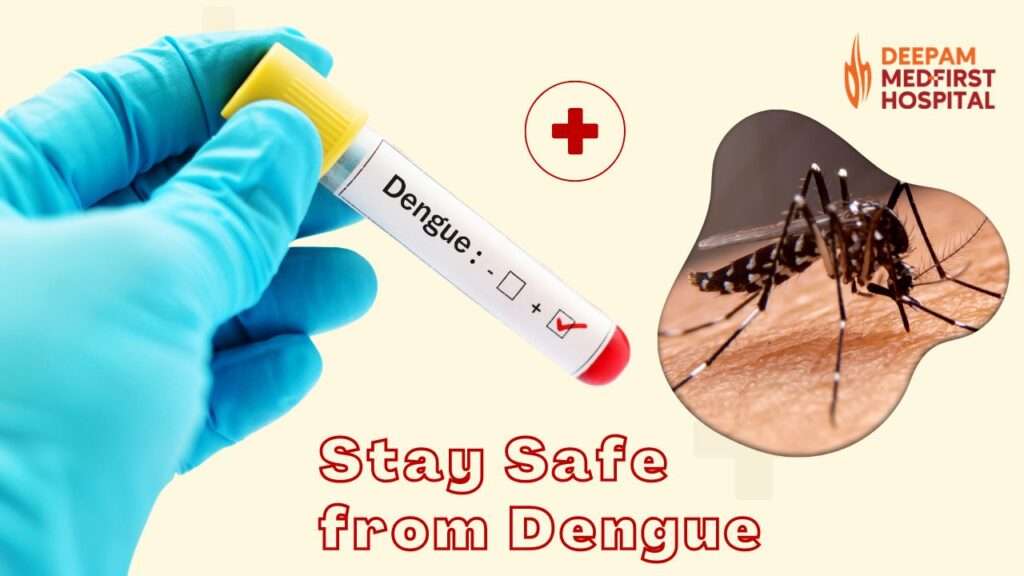Introduction:
Dengue fever, a mosquito-borne viral infection, continues to be a significant public health concern, especially in tropical and subtropical regions. With increasing urbanization and climate change, the risk of outbreaks is on the rise. It is essential to spread awareness about the prevention, symptoms, and treatment of dengue to protect communities and reduce the disease’s impact.
Understanding Dengue:
It is caused by the dengue virus (DENV), which is transmitted to humans through the bite of infected Aedes mosquitoes, particularly Aedes aegypti. The virus has four distinct serotypes (DENV-1, DENV-2, DENV-3, and DENV-4), and infection with one serotype provides lifelong immunity to that serotype but not to others. Subsequent infections with different serotypes can increase the risk of severe dengue, also known as dengue hemorrhagic fever.
Symptoms:
- Sudden high fever
- Severe headache, especially behind the eyes
- Pain in muscles and joints (often referred to as “breakbone fever”)
- Nausea and vomiting
- Skin rash that appears a few days after the fever
- Mild bleeding (nose or gum bleed, easy bruising)
Severe Dengue:
In some cases, it can develop into severe dengue, which is potentially life-threatening. Symptoms include:
- Severe abdominal pain
- Persistent vomiting
- Rapid breathing
- Bleeding gums
- Fatigue and restlessness
- Blood in vomit or stool
Immediate medical attention is crucial if any of these symptoms appear.
Treatment:
There is no specific antiviral treatment for dengue. Management involves supportive care to relieve symptoms:
- Hydration:
- Drink plenty of fluids to prevent dehydration.
- Pain relief: Use paracetamol to alleviate pain and fever. Avoid aspirin and non-steroidal anti-inflammatory drugs (NSAIDs) like ibuprofen, as they can increase the risk of bleeding.
- Medical care: Seek immediate medical attention if symptoms worsen or if severe it is suspected.
Prevention:
Preventing dengue focuses on reducing mosquito exposure and controlling mosquito breeding sites. Here are some key prevention strategies:
- Use mosquito repellents: Apply repellents containing DEET, picaridin, or oil of lemon eucalyptus on exposed skin.
- Wear protective clothing: Long-sleeved shirts, long pants, socks, and shoes reduce skin exposure.
- Use mosquito nets: Especially when sleeping during the day when Aedes mosquitoes are most active.
- Eliminate standing water: Mosquitoes breed in stagnant water, so regularly empty, clean, or cover containers that hold water, such as flower pots, buckets, and old tires.
- Community efforts: Participate in community clean-up drives to eliminate breeding sites and spread awareness.
Conclusion:
It is a preventable disease, but it requires community effort and awareness. By taking proactive measures to control mosquito populations and protect against bites, we can reduce the incidence of dengue and save lives. Public health campaigns, education, and timely medical intervention are critical in the fight against this disease. Spread the word and stay vigilant—together, we can make a difference.

